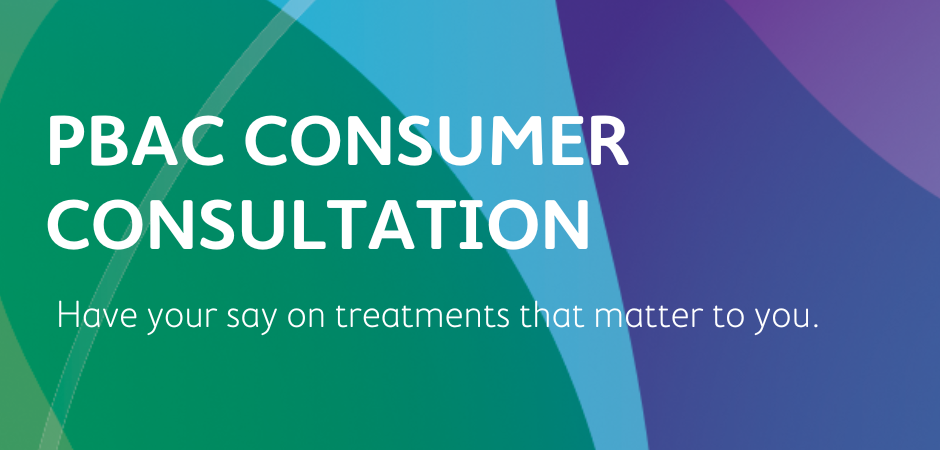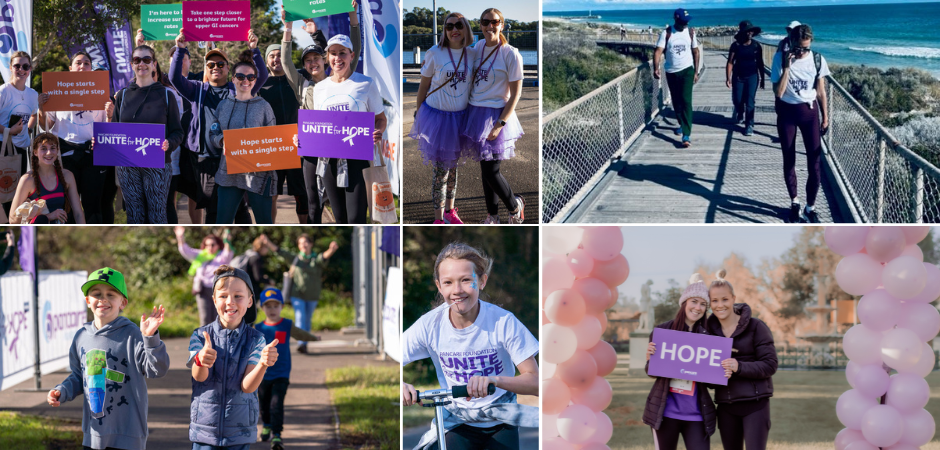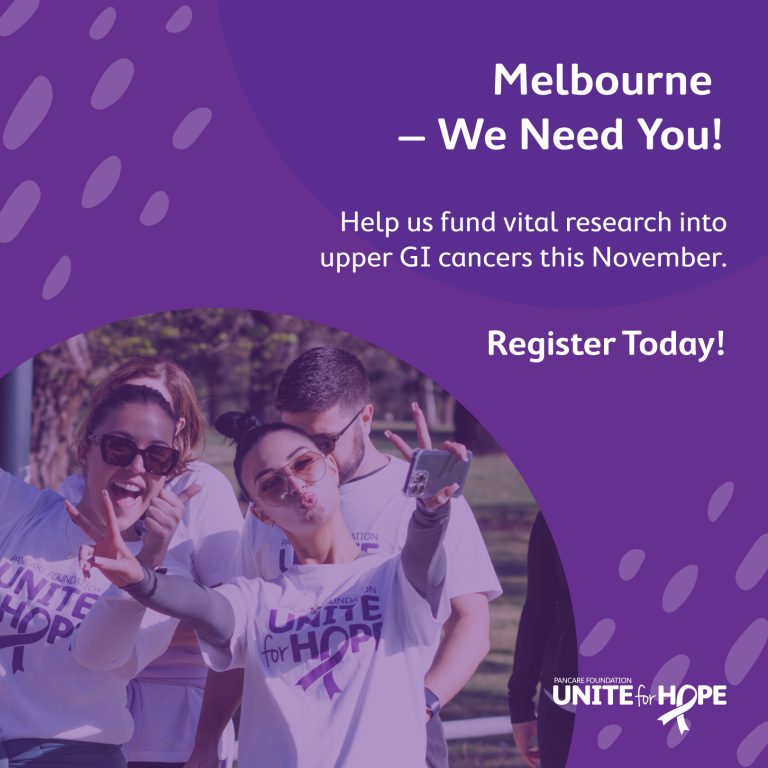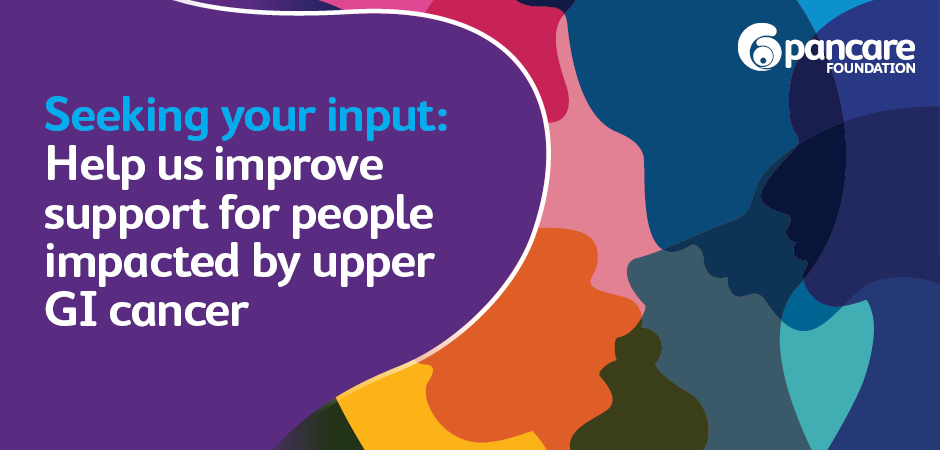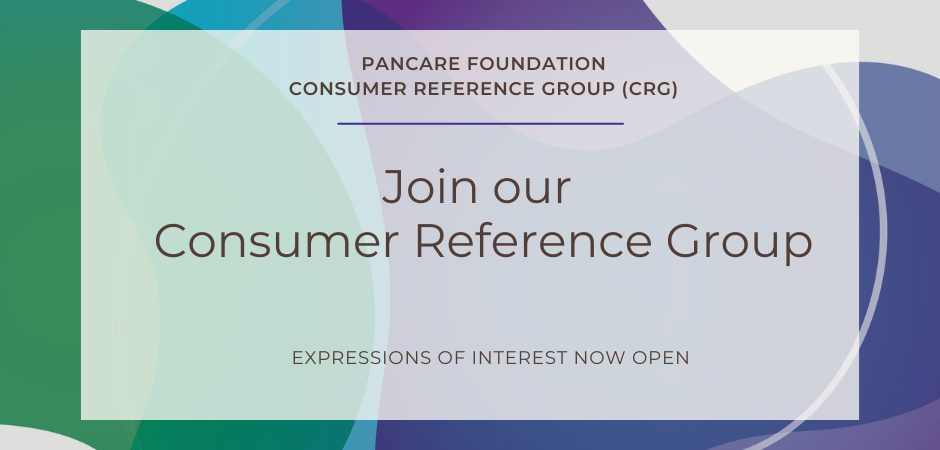
April is Oesophageal cancer awareness month.
During this month Pancare Foundation are raising awareness and highlighting the impact of Oesophageal cancer. Awareness raising (of the organs, cancer, signs and symptoms) is critical for the early diagnosis and treatment of this cancer.
Each year over 1,700 people are diagnosed with Oesophageal cancer in Australia, with over 1,000 of them being men. Devastatingly, nearly 1,400 people will also die from this disease. The 5 year survival rate is just 23%.
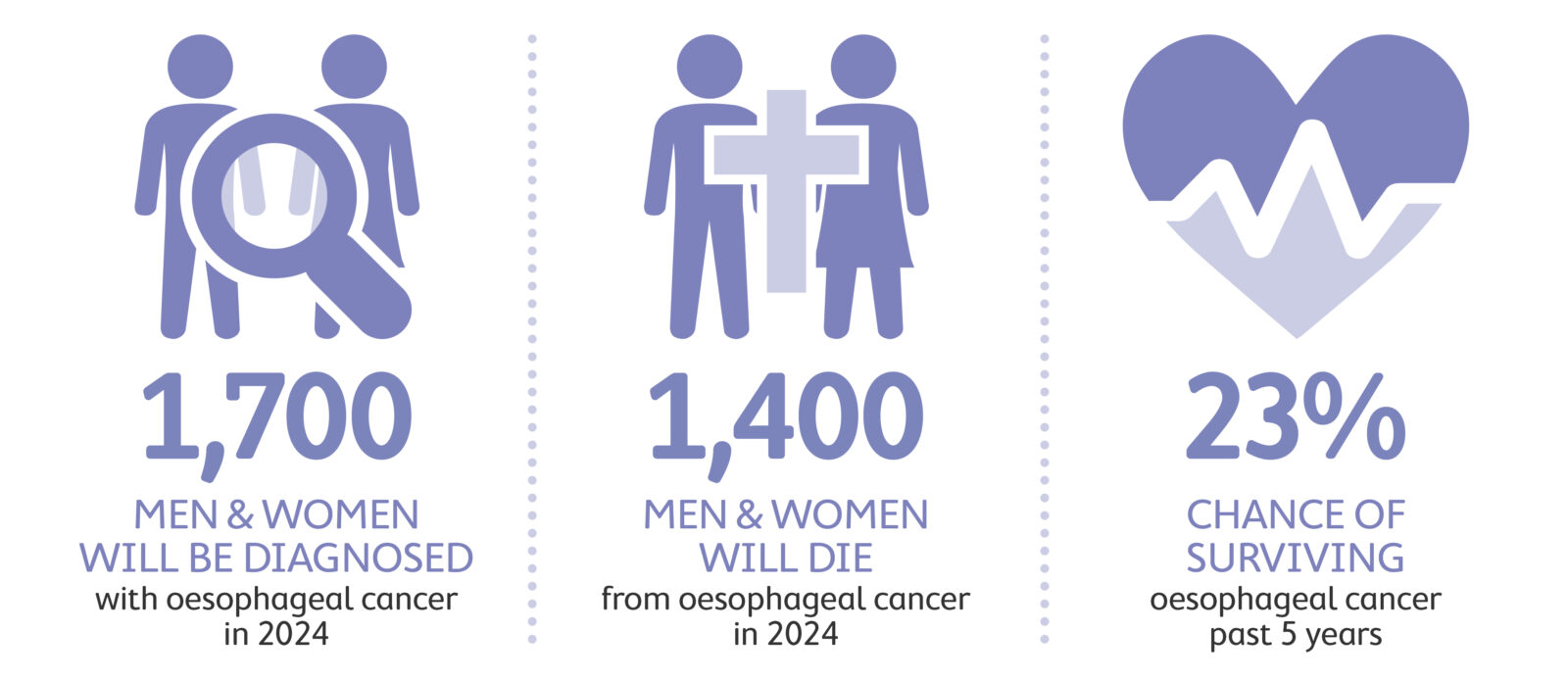
Oesophageal Cancer is considered a rare cancer with low survival rates and little recognition. Raising funds and awareness for Oesophageal cancer helps Pancare deliver personalised cancer support through our PanSupport services, increase awareness and amplify our advocacy. Raising awareness of Oesophageal cancer helps us work toward equity in experience and improved outcomes for all patients and their families.
Increases in survival rates for other cancers are correlated with significant investment and education over time. For there to be improvements in patient survival, there must be significant investment in research with a focus on improving early detection, new therapies and clinical trials that give patients living with cancer not just more time, but quality of life.
We ask you to join Pancare this April in our mission to:
UNITE COMMUNITY
ACCELERATE CHANGE,
DOUBLE SURVIVAL RATES
No Australian should be left to face Oesophageal cancer alone.

By donating $40 today, you’ll be making a heartfelt impact, empowering patients and their loved ones with a Pancare My Care Kit- a resource developed by Pancare to give patients the Knowledge, Information and Tools to better understand a recent diagnosis, treatments and support them throughout their cancer experience.
Ways you can get involved this April:
💙 Share our posts throughout April to raise awareness
💙 Show your love and support to those fighting the battle
💙 Create a fundraiser in memory or support of a loved one here
💙‘Go Blue’ and help show your support by purchasing a blue ribbon from our Pancare shop here
Survival of Oesophageal cancer is strongly tied to early diagnosis. However, early detection is difficult due to vague symptoms in its early stages which tend to worsen as the disease progresses.
Signs and Symptoms
Unlike some other cancer types such as Breast and Colon cancers, there are currently no effective screening tests for Oesophageal cancer in Australia. This means that many people present with an advanced disease.
However, our experience tells us that many Australian’s have symptoms from their Oesophageal cancer long before they were diagnosed. And these symptoms are often left unattended to. We also know that early diagnosis leads to higher rates of cure and better outcomes.
So, if you or anyone you know have any of the below symptoms, we urge you to see your doctor as soon as possible and seek an urgent referral for an endoscopy. Because early detection improves outcomes.
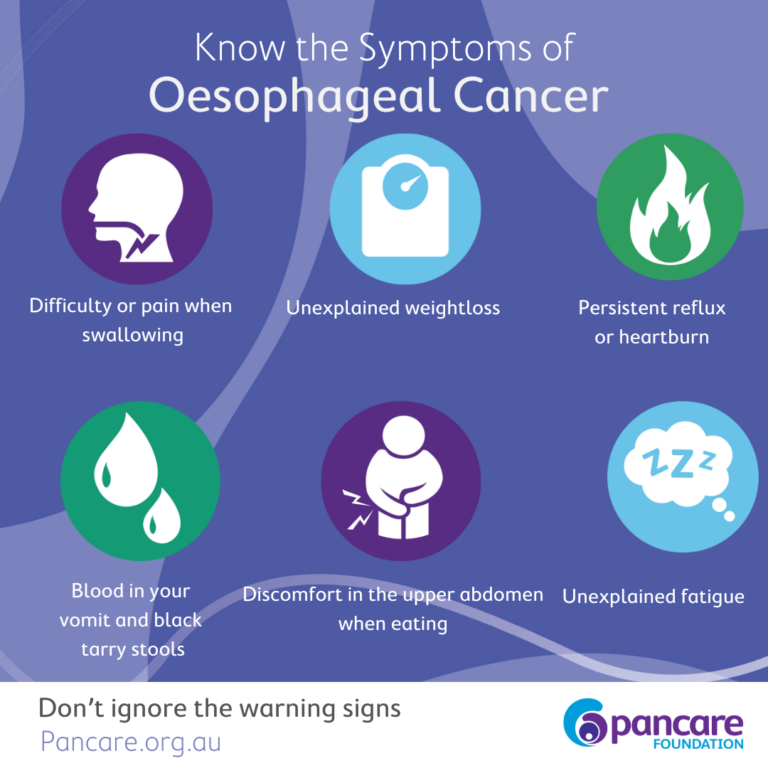
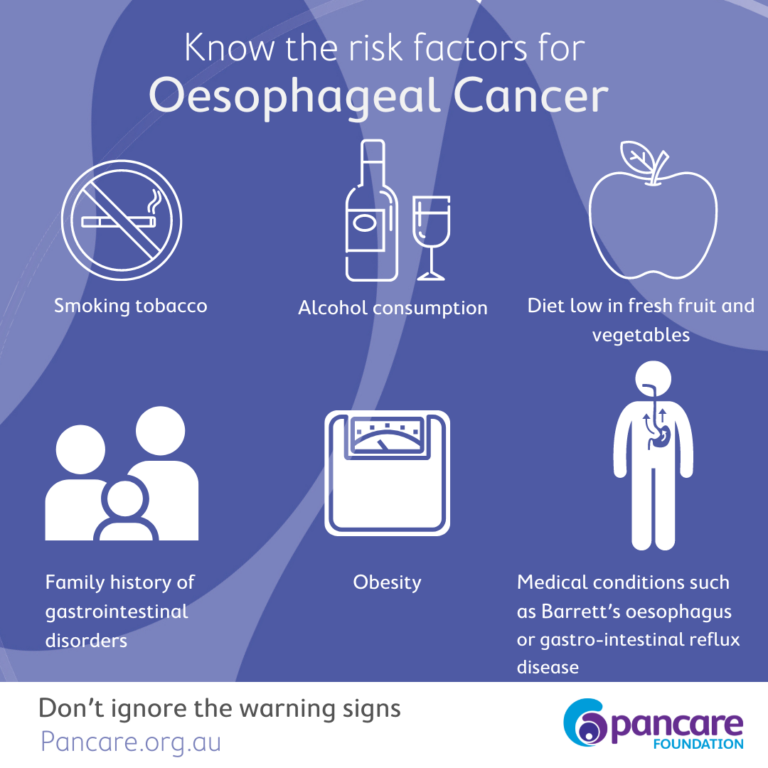
Diagnosis of Oesophageal cancer
A diagnosis of Oesophageal cancer is usually based on the results of a clinical examination, blood tests, an endoscopy procedure, imaging scans using magnetic resonance imaging (MRI) or computed tomography (CT), a biopsy and sometimes a barium swallow test.
For more information on Oesophageal cancer – including symptoms, risk factors, treatment and nutrition, visit further PanSupport resources here
Hope in Action – Living with Oesophageal Cancer.


“Six months prior to my diagnosis I had trouble swallowing. I didn’t think much of it at the time and would dismiss it as having to do with the food I was eating or because I was taking too big a mouthful. In fact, my mother had recently experienced a similar problem and had tests which came back fine so I really didn’t worry too much about it and assumed that it was likely just genetic.”
Over a short period of time John’s difficulty in swallowing became more frequent and intense.
“I was at a big family lunch gathering and mid-way through the meal I had to excuse myself from the table as I couldn’t swallow at all. I went to the bathroom and spent about 10 minutes trying to regurgitate the food I’d eaten because it wasn’t going down and was stuck.”
John, then 46, knew at that moment something was seriously wrong and after encouragement from family and friends he made an appointment to see his GP who then referred him to a specialist for a gastroscopy.
Watch Johns full video below:
For more patient videos and resources visit here
Dealing with the emotional impact of upper GI cancer
Finding out you have cancer may come as a shock and you may feel numb. You might also feel angry, sad, overwhelmed, scared, hopeful or lonely.
There is no right or wrong way to feel and it’s common to feel many different emotions.
It’s important to remember that you are not alone and there is lots of help and support available.
Through PanSupport, Pancare Foundation’s dedicated support, resource, and information service, we offer support to all Australians affected by upper GI cancers.
Whether it’s coping with a diagnosis, understanding treatment options, coping strategies for side effects, connecting with others, or social and emotional wellbeing counselling, our PanSupport team are there every step of the way providing dedicated support through every stage of your illness. All PanSupport services are free. Find the right support for you and your loved ones here.
Welcome to the download section – Assets to share awareness this April.
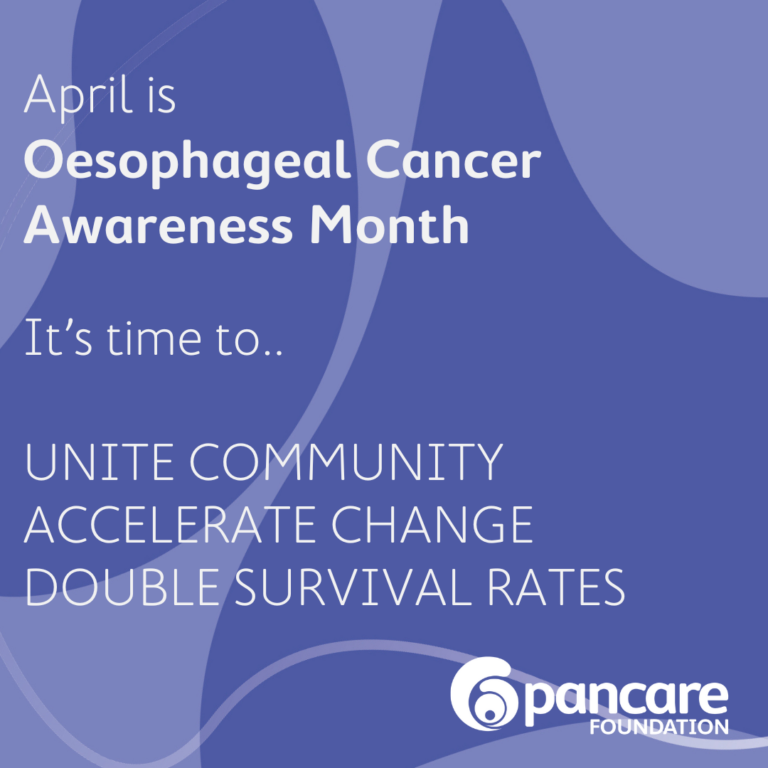
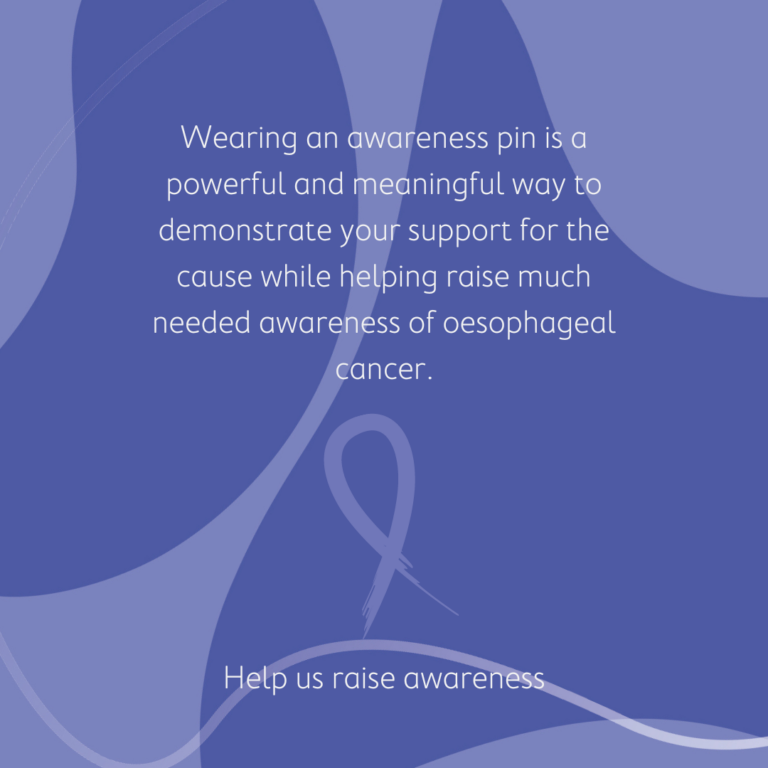
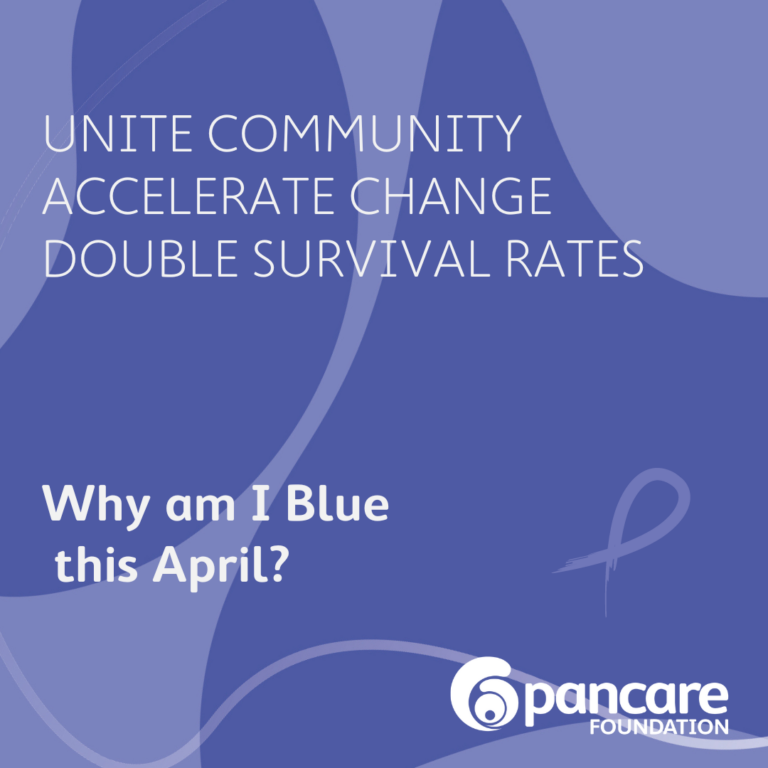
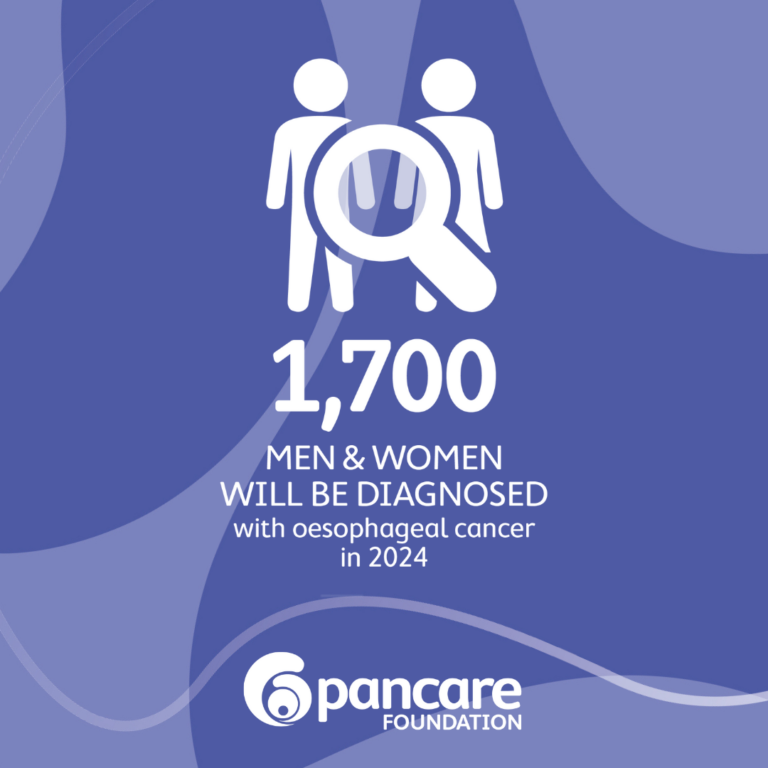
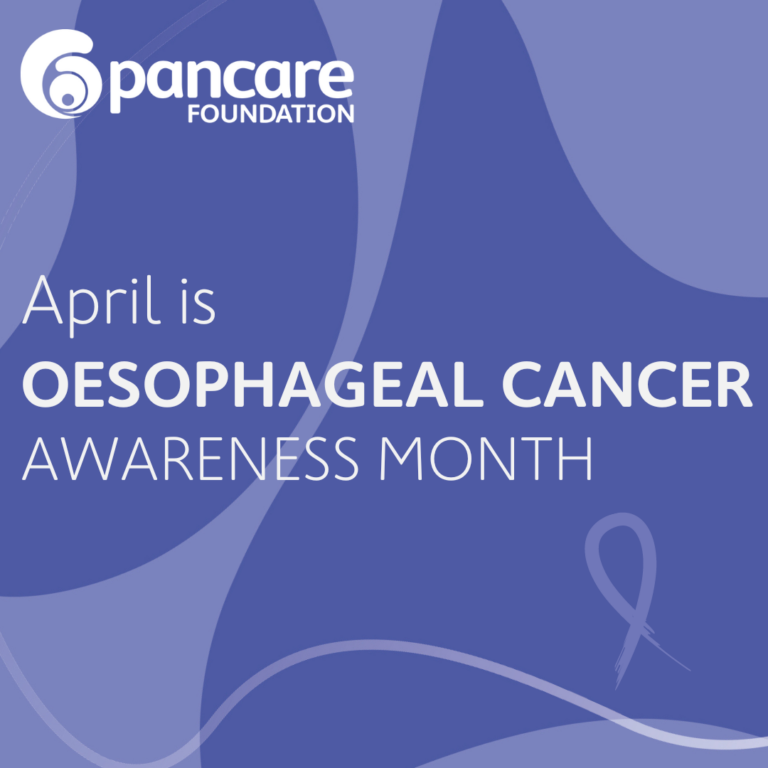



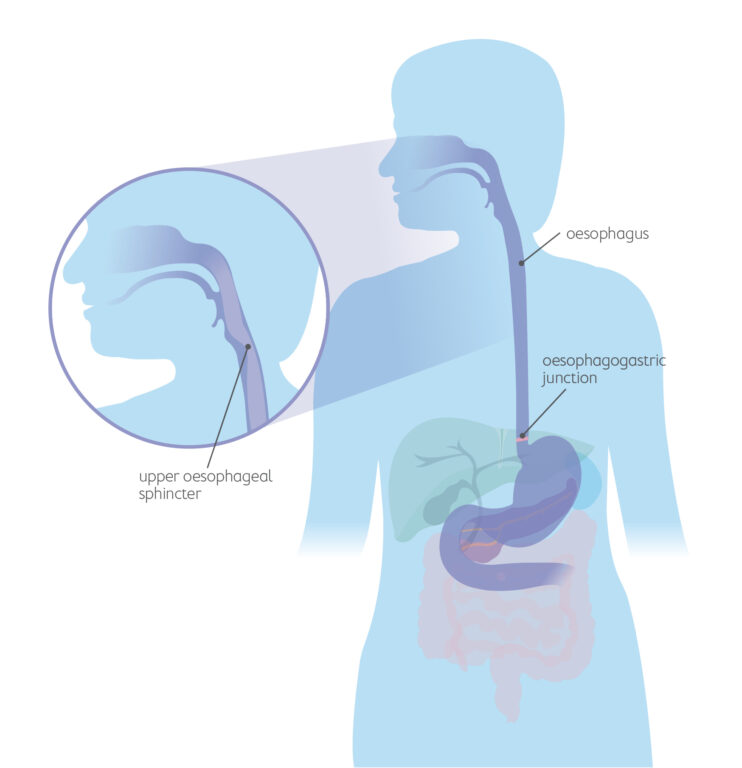
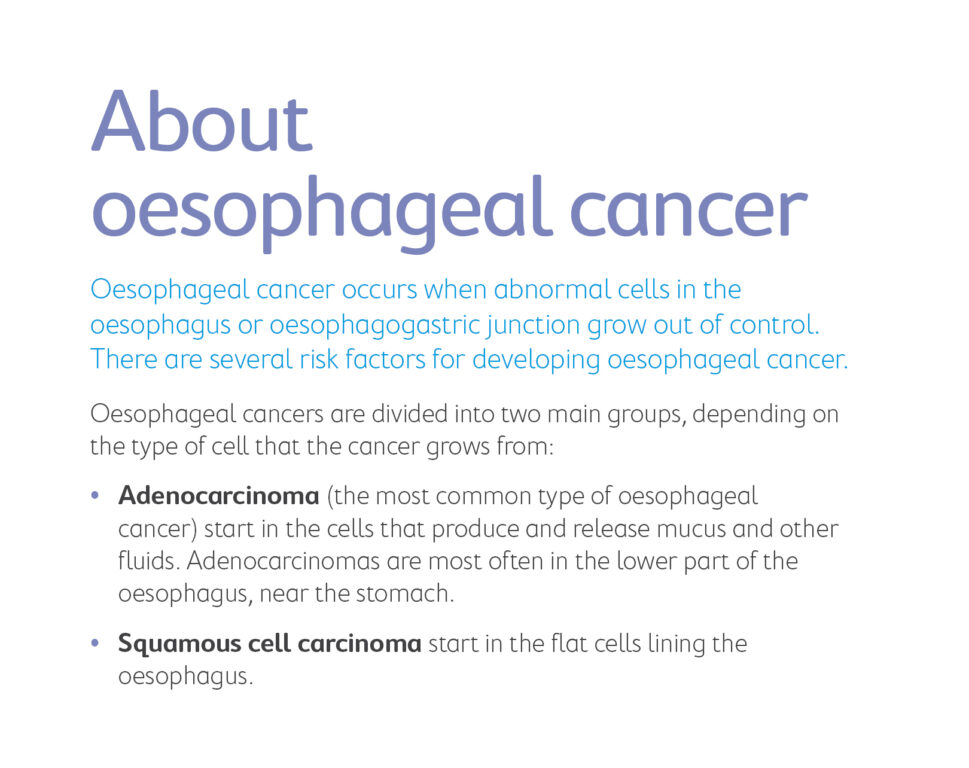


Read more . . .


